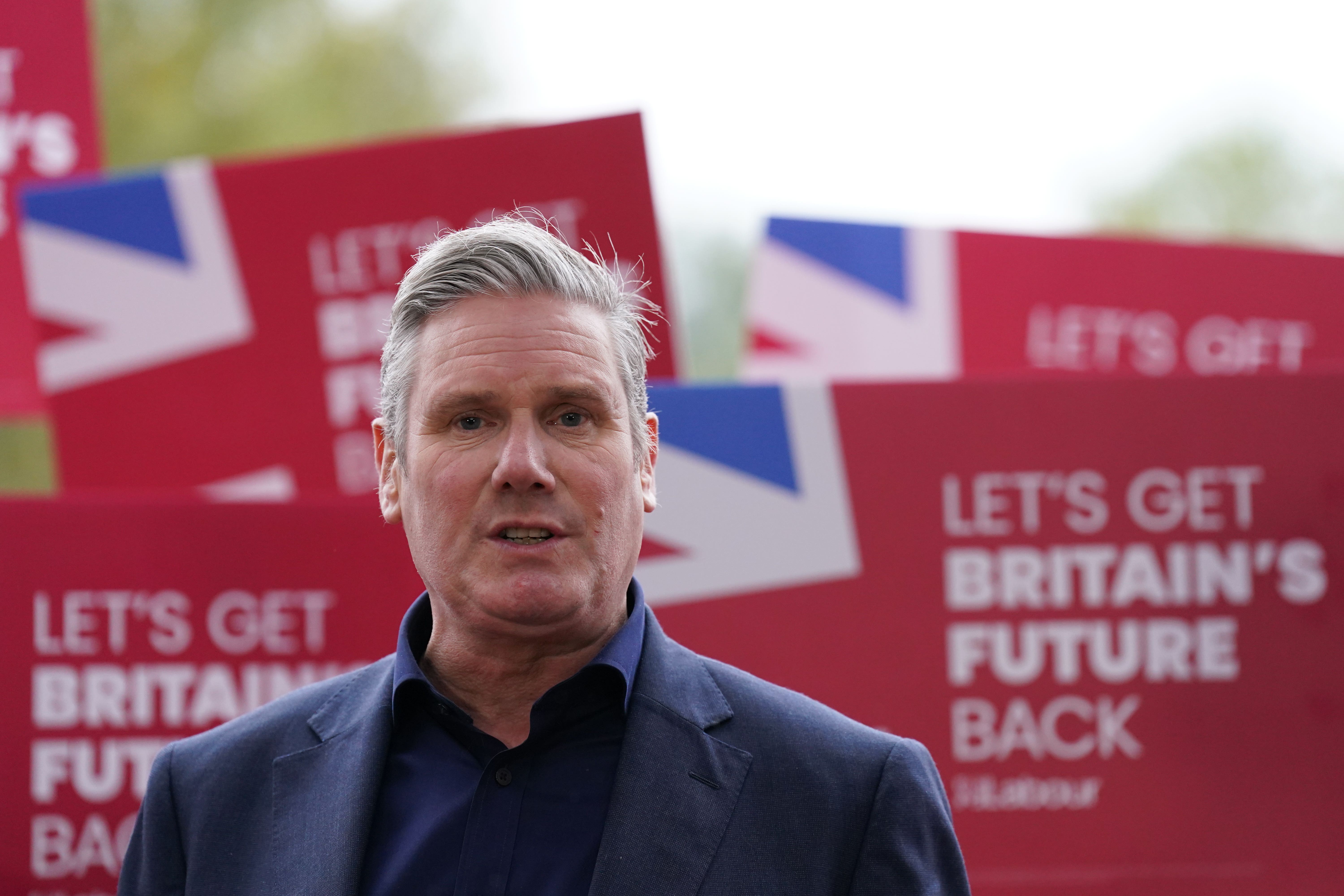We need a ceasefire in the Labour Party itself
Letters to the editor: our readers share their views. Please send your letters to letters@independent.co.uk

The Independent’s recent editorial provides a welcome answer to those who believe that the only way forward with the Gaza conflict is to demand a ceasefire. No one wants the horrendous war crimes to continue, but your editorial is right to assert that this will not impact Hamas in the slightest; they will continue to use innocent Palestinians as a protective shield.
Keir Starmer may believe his current approach is a sound way forward, but it is bound to offend the principles of those MPs and supporters of conscience who are calling for an immediate ceasefire.
It is fine for Starmer to project an image of a strong and reasonable leader who is ready to assume high office, but perhaps he should adopt a more nuanced approach to his dealings with those in his party who disagree with him. Over the divisive vote, he might have done better to acknowledge that the amendment was a matter of conscience and should have been allowed a free vote. In that way, he could have maintained his stance whilst acknowledging that other opinions are valid.
In truth, whatever Labour says will have little if any impact on events in Gaza and seems, therefore, an unnecessary reason for dividing a party that needs to be united in working to remove an incompetent Tory government from office.
Graham Powell
Cirencester
We need a ceasefire in the Labour Party
All decent-hearted people want the killing to stop in the Palestine-Israel war and a ceasefire declared. However, even if the Labour Party were to call for a ceasefire they have as much chance of getting one as the Tories have of sending refugees to Rwanda.
So why are Labour fighting amongst themselves rather than working towards a pragmatic way to reach peace?
Let us have a ceasefire within the Labour Party and an agreement to work together for the best possible outcome.
Rob Alliott
Address provided
Unethical and inhumane
While I understand that limiting the number of asylum-seekers residing in Britain is important for the nation’s economic and social stability, the Conservative government’s plans to deport these vulnerable and oppressed people to Rwanda are unethical and inhumane.
The government should aim to accommodate those who have risked their lives crossing the English Channel, rather than punishing them by sending them to an unsafe country in East Africa, where they may face even further danger.
Craig Gretton
Newcastle Upon Tyne
What do we expect from the Tories?
So, as if the Tory civil war now strangling Westminister couldn’t get worse, we now have the man ultimately responsible for the “emergency legislation” Rishi Sunak’s Rwanda plan is relying on, actually against the plan himself.
You’ve heard of the phrase “broad churches” of opinion to form a government, but with this government, the only thing broad is the route to the exit.
But what do you expect from Tories who love to hear their own voices and trip each other up anyway?
Geoffrey Brooking
Havant
The UK government must stand shoulder to shoulder with Commonwealth island nations
This week British negotiators will join delegates from all over the world in Nairobi to discuss a treaty to end plastic pollution.
Plastic infiltrates every part of life on earth, from the deepest seas, to deep inside our own bodies. Plastic pollution has a particularly pernicious effect on small island developing states (SIDS), two-thirds of whom are members of the Commonwealth. So often these SIDS are neglected by the UK government. Despite accounting for less than 1 per cent of the global population, small island nations carry the responsibility of stewarding 30 per cent of the world’s oceans. These countries include some of the world’s most precious and vulnerable ecosystems.
Plastic pollution threatens the entire global community, but poses urgent challenges that are unique to small island states such as Barbados, Maldives, and Vanuatu. This is because, despite producing little to no plastic themselves, these island states depend on a healthy ocean and coastlines for their economic and social wellbeing and have limited capacity to manage waste. The Caribbean Sea has some three times more plastic pollution than the global average, for example. When plastic waste generated in the UK washes up on the beaches of Kiribati or Haiti, it is the economies of some of the world’s poorest people that are put at risk.
Campaigners hope the UN’s global treaty on plastic pollution will give the UN’s 193 member states the impetus to take strong action to slash plastic pollution and protect the natural world.
The UK government must stand shoulder to shoulder with SIDS at the negotiations. That means going to Nairobi with a defined set of red lines ensuring the treaty caps plastic production, bans toxic and hazardous plastics, and makes polluting companies responsible for their products.
Small island nations are relying on Britain to lead the world’s major industrialised economies to join them in the fight for a treaty with teeth. For practically zero Whitehall expenditure, the government could do a lot more to protect our Commonwealth brethren and some of the world’s most beautiful islands.
Jo Royle
CEO of Common Seas






Join our commenting forum
Join thought-provoking conversations, follow other Independent readers and see their replies
Comments